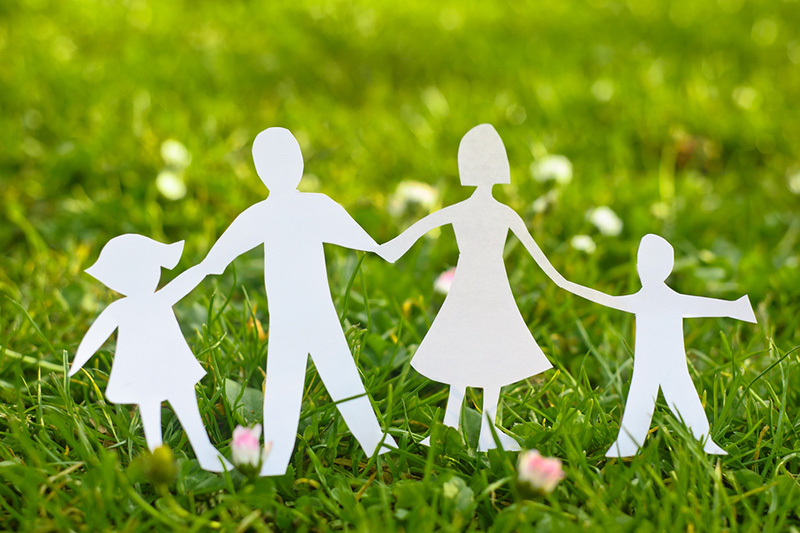What are my rights as a young adopted person?
There are different types of adoptions, and different reasons that people are adopted

Adoption means that you legally and permanently become part of a new family and no longer belong to your birth family. All of the legal parenting rights and responsibilities will be transferred from the birth parents to the adoptive parents. If you were put up for adoption by your birth parents, there are many different reasons for them to make that decision. Often, they want the child to have a better life than they feel they can provide.
You might have been adopted as a baby, a toddler or a teenager. You can be adopted at any time until you’re 18. You might have memories of your birth family or not and you might be adopted by a relative, by foster parents or by parents you didn’t previously know. You also might be adopted internationally, which means your adoptive family live in a different country to where you were born.
Types of Adoptions
There are different types of adoption. An adoption may be described as either a closed or an open adoption, depending on the level of contact between the biological parents and the adopted child.
Closed adoptions
Closed adoptions have historically been the most common type of adoptions. Adoption records are kept sealed in this type of adoption and there is no contact between biological parents and the adopted child.
Open adoptions
Open adoptions allow some forms of contact between the biological parent(s) and the adopted child in the form of phone calls, emails and even visits sometimes. Records are not sealed.
Being adopted
If you were adopted, it’s natural to have mixed feelings about it. You might be very happy as a member of your adoptive family, but still want to find out more about your identity, where you came from or who your birth family are.
Emotionally, it can be very stressful to decide how you deal with adoption and whether you want to know more about your birth family or not. Maybe you need to decide if you want to keep in contact with your birth family, or whether you wish to learn more about your country and heritage if you were internationally adopted.
The best way to deal with these feelings is to talk about them with other people. Talk to someone you trust such as a family member, friend, counsellor or social worker.
Tracing your birth family
Getting in contact with your birth family can be a tough and nerve-wracking decision to make. If you do choose to contact them, tracing your records can be a slow and often painful process. It’s strongly advisable to ask for counselling to help you work out your feelings during this time. Remember that nobody’s perfect and you’ll need to be very open-minded about meeting your birth family. You’ll also need to talk honestly about this decision with your adoptive family. Be prepared to give them time to get used to the idea of you contacting your birth family.
Legally, you need to be over 18 to trace your birth family. You are entitled to the information on your birth certificate and to know which court or agency dealt with your adoption.
Contacting the adoption agency
There’s no central location for adoption files in Ireland, so the first step is to contact the adoption agency that dealt with your adoption. This will either be a registered adoption agency or the HSE. The Adoption Authority of Ireland is responsible for dealing with tracing enquiries and will have information on all registered adoptions since 1952.
If you don’t know what agency you were adopted with, you should write to the Adoption Authority and ask for information. Be sure to include:
- Your name
- Date of birth
- Names of your adoptive parents
- Your address at the time of adoption
They should be able to tell you which adoption agency you need to speak to. If the adoption agency no longer exists, get in contact with your local HSE.
If you were not legally adopted, you can contact the Local Health Office of the HSE in the area where you lived as a child. They may be able to help you with the tracing process.
Whether you are dealing with the HSE or an adoption agency, you will be asked to fill out a form detailing basic information about yourself. After you have submitted this form, you will be put on a waiting list. When you reach the top of the waiting list, you will be invited to meet with a social worker. They will give you further information on the process and a rough idea of how long it will take.
Preparing for the outcome
If you decide to try to trace your birth parents, there are several possible results. You might find a birth parent and meet them. It’s also possible that you may find them but they don’t want to meet you. Perhaps your parent or parents will have died before you had the opportunity to meet them.
Tracing your birth parents can be an emotionally draining and painful process. Therefore, the HSE and most adoption agencies provide counselling to those who wish to trace their birth parents.
Reunion with your biological parent(s)
If you’re successful in tracing your biological parent(s), there are a few things to keep in mind.
Before you meet
It’s a good idea to exchange letters or emails and photos before meeting your birth family in person. Before you meet, it is important to recognise that some birth parents may only meet their biological child once and do not wish to have a continuing relationship with them.
Meeting your birth family
It is generally recommended that a social worker be a liaison between you and your biological parent, both during the tracing process and at the first meeting. They can assist with introductions and also help to ease any awkward feelings at the meeting.
If the first meeting is difficult, it does not mean that there is no hope of developing a relationship. Bear in mind that your adoptive family might find it hard to deal with also.
Try to prepare yourself for the emotional intensity of meeting your biological parent. No matter how well it goes, you will still need support from friends/family.
Need more information, advice or guidance?
We offer information, advice and guidance about the issues that matter to you. Our online Youth Information Chat service is for 16 to 25 year olds and is available Monday to Friday, 4pm to 8pm (excluding Bank Holidays).





